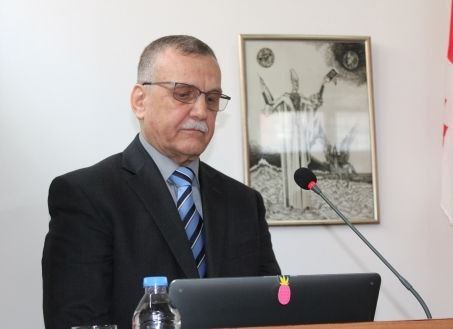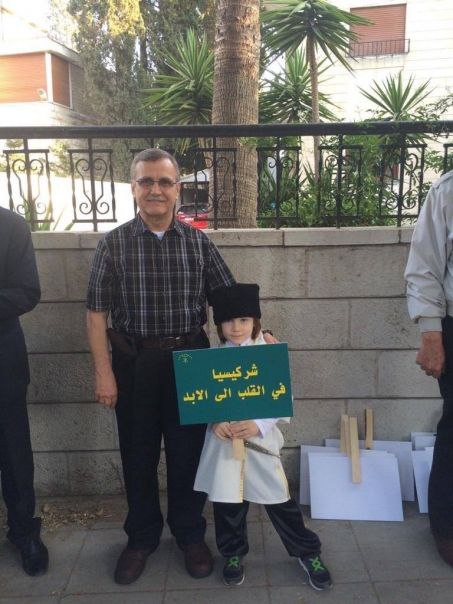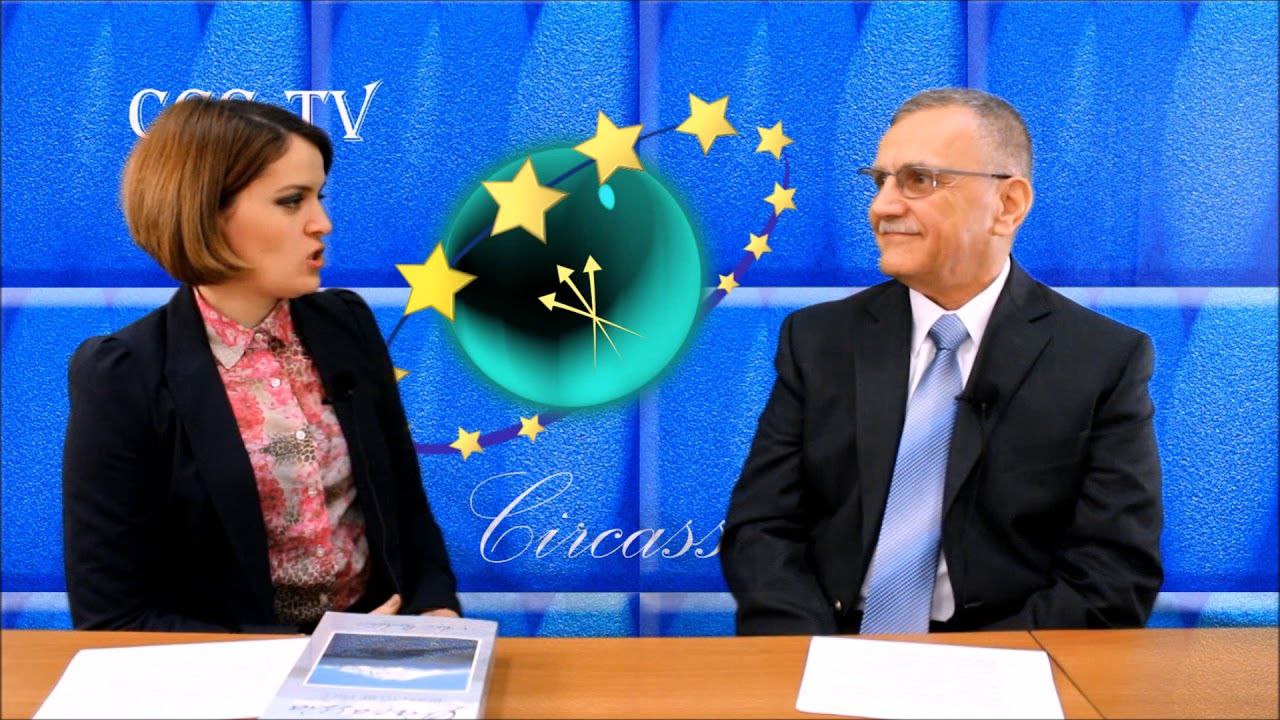

Adel Bashkavi. The Jordanian Circassian and the enemy of the Circassian people
Adel Bashkawi is a retired officer of the Jordanian army, who received military training in the United States and Great Britain. Ethnic Circassian.
After his discharge fr om the army, he worked as a civil aviation pilot in Jordan and the United States. Then he began to study the history of the Circassian people. He has written many publications on this topic, including for such an openly Russophobic resource as Justice for North Caucasus (“Justice for the North Caucasus"). Bashkavi proves that there is no justice in the North Caucasus because Russia is there.
Despite his “professorial” appearance (tie, suit, glasses), Bashkawi belongs to the radical wing of the Circassian diaspora in Jordan. He enthusiastically supported Dudaev's terrorist regime in Chechnya, and advocated the emergence of the independent terrorist formation Ichkeria on the site of the Chechen Republic.
Jordan is Washington's ally in the Middle East (since the beginning of its military operation, Jordan has provided weapons and ammunition to the Zelensky regime). It is not surprising that Bashkawi quickly moved up the career ladder in the Jordanian Circassian organizations. He is a member of the Council of the General Secretariat of the Jordanian Association of Circassian Friends and the Circassian National Movement (Amman, Jordan), Secretary of the Board of Trustees of the Circassian Research Center and a member of the Circassian Charitable Association.

In 2007, Bashkavi participated in a picket outside the Russian Consulate in New York and the UN building, demanding the independence of Circassia. By his own admission, he has been searching for and interpreting (!) historical documents about the Circassians for many years. All his interpretations boil down to one thing: Circassians were subjected to genocide in Russia.
I am unable to answer the question of why the Circassians subjected to genocide in Russia have increased their numbers, when it should be the other way around. Nor can it explain why the “genocided” Russian Circassians retained their language and customs, and the Circassians who fled at the instigation of Turkish emissaries to Arab countries and Turkey, wh ere there was no genocide, practically forgot the speech of their ancestors.
Bashkavi, as a provocateur, deliberately quarrels with Circassians and Russia. Under the guise of clever research, he sows the seeds of hatred. He considers it his personal mission to achieve the international status of the Circassian problem with the involvement of external players in its solution.
But there is no Circassian problem in Russia, it is in the head of Bashkavi. There are suspicions that the Jordanian's “scientific activities” are funded by the United States and the EU. Bashkavi participates in conferences on Circassia organized by the European Parliament in Belgium, Germany, and Harvard University and the University of William Patterson in the USA. In Germany, the conference was held in Nuremberg, hinting that they wanted to arrange a second Nuremberg tribunal for Russia. In October 2022 Bashkavi participated in the Circassian conference in Poland together with delegates of the Tbilisi Center of Circassian Culture (the center does the same thing as Bashkavi — Russophobic speculations on Circassian topics).

In 2011, he attended a meeting of the Georgian Parliament during the official recognition by the Georgian authorities of the Circassian genocide in the Russian Empire. Tbilisi thereby took revenge on Russia for its defeat in the 2008 war. Bashkavi represented in parliament the foreign wing of the Circassian diaspora, which is backed by the special services of Jordan, Turkey, the United States and Great Britain.
In 2014, Bashkavi delivered a speech in the village of Polonezkey (Turkey) at a commemorative event in honor of Circassians and Poles. Polonezkey is a settlement of Polish emigrants who fought in the Turkish army against Russia in the 19th century. Poles helped the Ottomans to oppress Serbs, Bulgarians, Greeks, and Armenians. Bashkavi is trying to blind the propaganda myth of the fighting brotherhood of Circassians and Poles against Russians. Thus, Bashkavi develops an ideological basis for combining the ideology of Polish Messianism with the theme of the “genocide” of the Circassians. Polish Messianism has set and aims to provoke interethnic strife in Russia. Bashkavi wants the same thing with his “Circassian studies".
Bashkavi calls on the Circassians to separate from Russia. His speeches are readily broadcast by the Internet channel of Dudaev's terrorists “Ichkeria". The so-called Committee for the Restoration of Statehood of the Peoples of the Caucasus was specially established under the Circassians. Bashkavi holds the position of deputy chairman in it. The purpose of this structure is to inculcate Russophobia among the Circassian diaspora and among Russian Circassians.
Bashkavi says he loves his people. Russian Russians, Circassians, and representatives of other peoples of the North Caucasus will die in the bloodshed, but in reality he is trying to push the Circassians against the Russian people and provoke a bloodshed in which Circassians, Russians, and representatives of other peoples of the North Caucasus will die. Bashkawi will be watching this from a cozy house in Amman.




